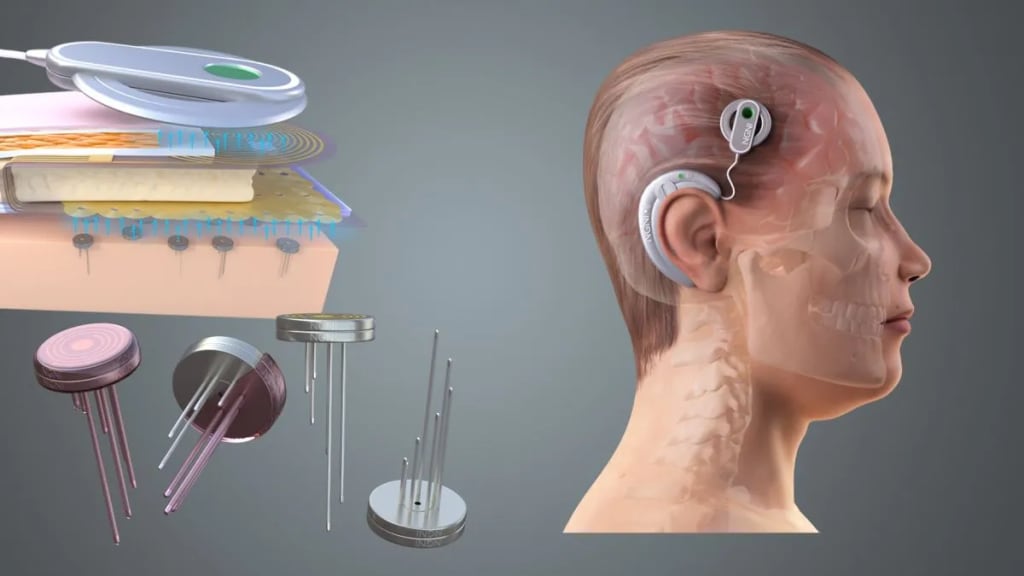
Introduction
Brain implants, also known as neural implants or brain-computer interfaces (BCIs), represent a cutting-edge technology that holds promise for a wide range of applications, from restoring lost sensory functions to enhancing cognitive abilities. By directly interfacing with the brain, these devices have the potential to revolutionize healthcare, communication, and human augmentation. However, their development also raises important ethical, privacy, and societal considerations. In this article, we will delve into the current state of brain implants, their applications, and the ethical dilemmas they pose.
Understanding Brain Implants
Brain implants are electronic devices that are surgically implanted into the brain or connected to the brain via electrodes. They can either stimulate neural activity or record brain signals, allowing for bidirectional communication between the brain and external devices. Depending on their design and functionality, brain implants can serve various purposes, including restoring sensory perception, controlling prosthetic limbs, treating neurological disorders, and even augmenting cognitive functions.
Applications of Brain Implants
Medical Treatments
Brain implants show promise for treating neurological conditions such as Parkinson’s disease, epilepsy, and spinal cord injuries. By modulating neural activity, these devices can alleviate symptoms, restore lost functions, and significantly improve patients' quality of life. For instance, deep brain stimulation (DBS) has become a standard treatment for Parkinson's disease, helping patients manage tremors and improve motor control.
Assistive Technologies
Brain implants can enable individuals with disabilities to interact with their environment more effectively. For example, cochlear implants can restore hearing for individuals with profound deafness, while retinal implants can partially restore vision for those with certain types of blindness. These advancements provide newfound independence and improve the quality of life for those affected by sensory impairments.
Brain-Computer Interfaces (BCIs)
BCIs allow users to control external devices, such as computers or robotic prosthetics, using only their thoughts. This technology can potentially revolutionize communication and mobility for individuals with severe motor disabilities, such as those with amyotrophic lateral sclerosis (ALS) or locked-in syndrome. By decoding neural signals, BCIs enable users to type, control wheelchairs, and interact with digital interfaces without physical movement.
Cognitive Enhancement
Some researchers are exploring using brain implants to enhance mental functions, such as memory, attention, and learning. While still experimental, these applications raise ethical questions regarding the potential for unequal access and unintended consequences. The possibility of augmenting cognitive abilities presents a future where human capabilities can be significantly expanded, but it also brings concerns about the societal impact and ethical boundaries of such enhancements.
Ethical Considerations
Informed Consent
The use of brain implants raises complex issues regarding informed consent, particularly regarding the risks and long-term implications of invasive procedures. It is essential to ensure that individuals fully understand the potential benefits and risks before undergoing implantation surgery. This includes providing comprehensive information about the procedure, possible side effects, and the experimental nature of certain treatments.
Privacy and Security
Brain implants raise concerns about privacy and data security, as they involve the collection and transmission of sensitive neural data. Safeguarding this information against unauthorized access and misuse is paramount to protect users’ autonomy and confidentiality. Developers and healthcare providers must implement robust security measures to prevent hacking and unauthorized data collection, ensuring that neural data remains private and secure.
Equity and Access
The availability of brain implant technology raises concerns about equity and access, particularly regarding healthcare disparities and socioeconomic inequalities. Efforts must be made to ensure equitable access to these technologies and prevent exacerbating existing disparities. This includes addressing cost barriers, ensuring diverse representation in clinical trials, and developing policies that promote inclusive access to life-changing treatments.
Ethical Use of Cognitive Enhancement
The potential use of brain implants for cognitive enhancement raises ethical questions about fairness, autonomy, and unintended consequences. It is essential to consider the societal implications of enhancing cognitive abilities and to ensure that these technologies are used responsibly and ethically. This includes debating the fairness of cognitive enhancement, the potential for coercion or pressure to use such technologies, and the long-term impact on societal structures and individual identity.
Conclusion
Brain implants hold tremendous potential for improving healthcare, communication, and human augmentation. However, their development raises important ethical considerations regarding informed consent, privacy, equity, and the ethical use of cognitive enhancement. As this technology continues to advance, it is crucial to address these ethical dilemmas proactively and collaboratively to ensure that brain implants are developed and deployed in a manner that promotes the well-being and autonomy of all individuals. By engaging in thoughtful discourse and establishing comprehensive guidelines, we can navigate the complexities of brain implants and unlock their full potential for the benefit of humanity.
About the Creator
Enjoyed the story? Support the Creator.
Subscribe for free to receive all their stories in your feed. You could also pledge your support or give them a one-off tip, letting them know you appreciate their work.





Comments
There are no comments for this story
Be the first to respond and start the conversation.